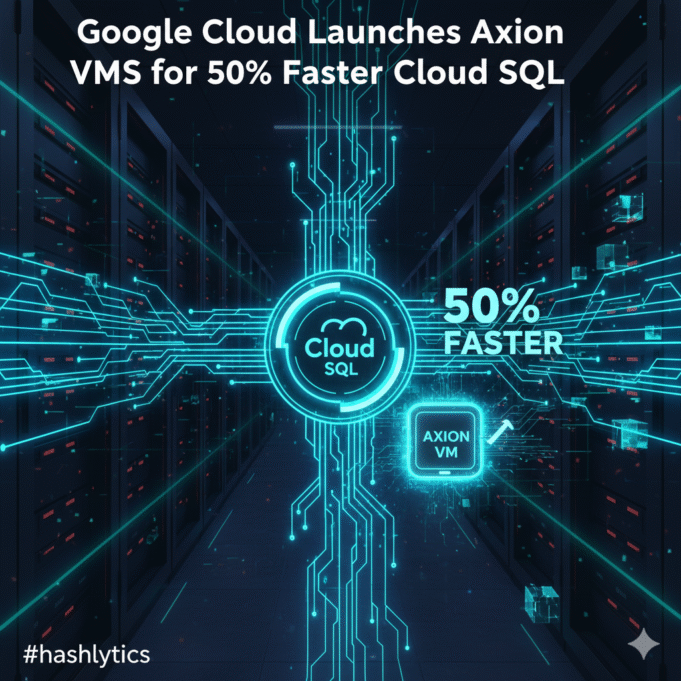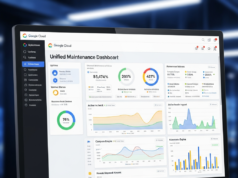Google Cloud has significantly enhanced its database offerings with the general availability of Axion-based C4A and N4 virtual machines for Cloud SQL Editions, promising enhanced performance for enterprise workloads. This integration of Google’s custom Arm-based Axion processors into Cloud SQL, supporting MySQL, PostgreSQL, and SQL Server, marks a pivotal advancement. The C4A series offers up to 50% better performance per vCPU compared to previous x86-based instances, while the N4 series provides cost-effective options for lighter tasks.
Performance and Sustainability Benefits
Enterprises running data-intensive applications can now leverage these VMs for tasks like real-time analytics and AI-driven queries, with built-in features such as automated backups and high availability. The efficiency of Axion stems from its Arm architecture, which reduces energy consumption by 60% compared to comparable x86 chips, aligning with Google’s sustainability goals. Early adopters have reported smoother migrations and lower operational costs. Learn more on the Google Cloud Blog.
Validated Performance Gains
Independent tests validate the performance gains. Benchmarks show Axion delivering competitive performance against rivals like Amazon’s Graviton, with C4A instances excelling in database throughput. For Cloud SQL users, this translates to faster query execution—up to 3x improvements in some scenarios—without rewriting code, as the Arm compatibility ensures seamless transitions.
Key Developments
- Up to 50% performance improvement with C4A VMs
- Seamless transition for Cloud SQL users due to Arm compatibility
- Integration with Titanium SSDs for enhanced I/O operations
Enhanced I/O Operations with Titanium SSDs
The integration with Titanium SSDs boosts I/O operations, making these VMs ideal for high-transaction environments. Google asserts a 10% edge in price-performance over competitors. This is significant for businesses seeking efficient and scalable database solutions.
Titanium SSDs enhance the I/O capabilities of Axion-based VMs, crucial for applications requiring rapid data access and processing.
Real-World Performance: Elastic Case Study
Elastic achieved a 40% indexing speed boost on Axion-powered C4A VMs. This is particularly relevant for Cloud SQL Editions, where users can scale databases dynamically without downtime.
- Indexing Speed: 40% increase in indexing speed for Elastic
- Scalability: Dynamic database scaling without downtime for Cloud SQL Editions
Competitive Positioning and Flexibility
Google’s push with Axion positions it strongly against AWS and Azure, where Arm adoption is also rising. The N4 VMs, optimized for general-purpose workloads, offer flexible configurations from 1 to 96 vCPUs. This flexibility is crucial for cost-conscious businesses scaling Cloud SQL.
Enhanced performance and cost-efficiency provide a strategic edge over AWS and Azure, while flexible configurations from 1 to 96 vCPUs cater to diverse workload requirements.
Security and Ecosystem Support
Security features, including confidential computing, add another layer, ensuring data protection in regulated industries. Collaborations yield up to 40% higher throughput, signaling broader ecosystem support.
The move to Arm-based processors in cloud environments represents a significant shift towards improved energy efficiency and performance.
Future Outlook and Considerations
Looking ahead, Google plans expansions, with previews of Axion in AlloyDB suggesting more database innovations. However, challenges remain, such as ensuring full software compatibility for legacy apps, though Google’s tools mitigate this.
Recommended Actions
- Explore Axion-based VMs for data-intensive applications
- Assess the compatibility of legacy apps with Arm architecture
- Monitor Google’s future expansions and innovations in AlloyDB




